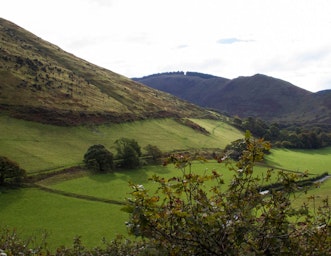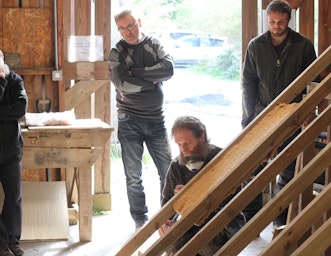
“Now or never” – another stark warning from the IPCC
April 8, 2022Home » “Now or never” – another stark warning from the IPCC
This week saw the release of another landmark report from the Intergovernmental Panel on Climate Change. Paul Allen highlights some of the headlines and looks at what needs to happen next.
After years of research and weeks of discussion as wording was finalised, this week the Intergovernmental Panel on Climate Change (IPCC) has released the third instalment of their Sixth Assessment Report, which will be completed in full later this year.
This latest report, ‘Climate Change 2022: Mitigation of Climate Change’, provides an updated assessment of progress on climate change mitigation, and looks at the major actions needed to reduce greenhouse gas emissions in line with the goals of the Paris Agreement.
The IPCC warning is crystal clear – without immediate and deep emissions reductions across all sectors, limiting global warming to 1.5°C is beyond reach. The report highlights that even if all of the national plans and policies that were in place at the end of 2020 were enacted, we would still be heading for a 3.2°C warmer world by 2100. Previous reports from the IPCC have shown the catastrophic impacts of these kinds of temperatures.
The report was compiled by Working Group III, and their Co-Chair Jim Skea said:
“Climate change is the result of more than a century of unsustainable energy and land use, lifestyles and patterns of consumption and production… it’s now or never, if we want to limit global warming to 1.5°C. Without immediate and deep emissions reductions across all sectors, it will be impossible. This report shows how taking action now can move us towards a fairer, more sustainable world.”
Time for action
We support the IPCC’s clear statement on the urgency of the global situation. For decades, CAT has recognised that climate change is one of the key risks to human wellbeing and our secure niche on planet earth, and rapid reductions in greenhouse gas emissions remain the only way to limit this risk.
For almost 50 years, CAT has been developing the knowledge, technologies and tools needed to re-think energy, buildings, communities and land-use to work within planetary limits and create a better future for all humanity. These ideas are now moving rapidly into the mainstream, as demonstrated by this latest IPCC report, the cover of which shows the kinds of eco-buildings CAT has pioneered, with PV panels, solar water heaters, rain barrels and growing areas.
CAT’s initial Zero Carbon Britain report, presented to the UK All-Party Parliamentary Climate Change Group in 2007, made a clear case that we already have the fundamental tools and technologies we need to reach net zero emissions. What was important then, as now, is that we quickly employ these technologies in locally appropriate ways, bringing everyone into that conversation to share the costs and benefits as fairly as possible across society. The science says we must, the technology says we can – now is our last chance to collectively say we will and rise to that challenge.
Over the 15 years since our first Zero Carbon Britain report, costs of a number of technologies have fallen faster than experts predicted. We are increasingly recognising the range of co-benefits, from cleaner air to cheaper-to-heat homes, to meaningful jobs, to healthier diets and the potential for a global sense of a ‘collective mission’ which can help bring communities and nations together in these difficult times.
The new IPCC report also argues that in addition to reaching net zero new greenhouse gas emissions we need to explore and develop tools for re-capturing the emissions of the past 100 years if immediate and meaningful cuts to fossil fuel use are not made. CAT has always argued that such tools must only be used in addition to achieving net zero, not as a means to achieving it. This is all the clearer now, given the decreasing likelihood of limiting temperature increase to 1.5 degrees. Any overshoot in temperature will require exerted efforts to reduce atmospheric concentrations of greenhouse gases to levels safer for humans and nature.
Climate justice is key to successful delivery. The massive shifts in how we live must not unfairly burden already vulnerable people and communities. We need to transform the systems which have caused the problems, backed by the resources, training and overarching policies required to make it happen on the ground in ways that offer real and lasting benefits to people and communities around the globe.
CAT’s Zero Carbon Britain Hub and Innovation Lab works with councils, communities and businesses across the UK to help create real change – find out more and get involved.
About the author
Paul Allen is knowledge and outreach coordinator for CAT’s Zero Carbon Britain team. Offering 30 years’ experience initiating ‘ahead of the curve’ research projects, backed by strong technical and practical experience, Paul has led the ground-breaking Zero Carbon Britain research for over 12 years, leading on the development of six reports and liaising directly with government, business, public sector and the arts to share their findings. He has a wide breadth of public speaking experience from UNFCCC COP conferences to local council training.
- Climate Change
- Policy
Related Topics
Related news


CAT Conversations: Sandy Stevens, CAT graduate
17th April 2025
CAT stories – Nick Parsons and Mike Russell
29th January 2025
CAT Conversations: Fergus Paxton, CAT volunteer
2nd December 2024EMAIL SIGN UP
Keep up to date with all the latest activities, events and online resources by signing up to our emails and following us on social media. And if you'd like to get involved and support our work, we'd love to welcome you as a CAT member.
